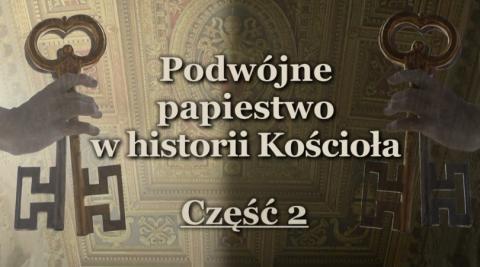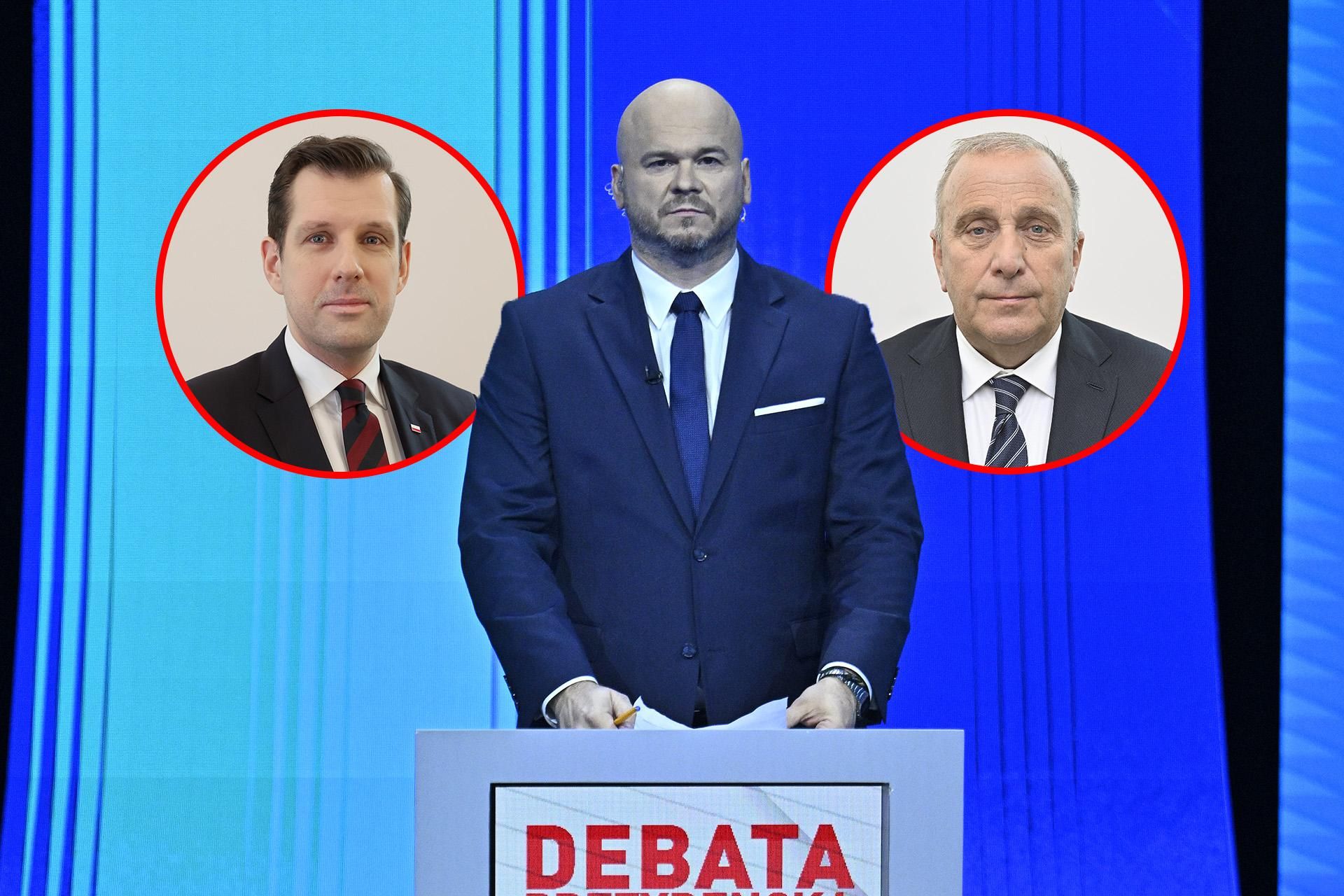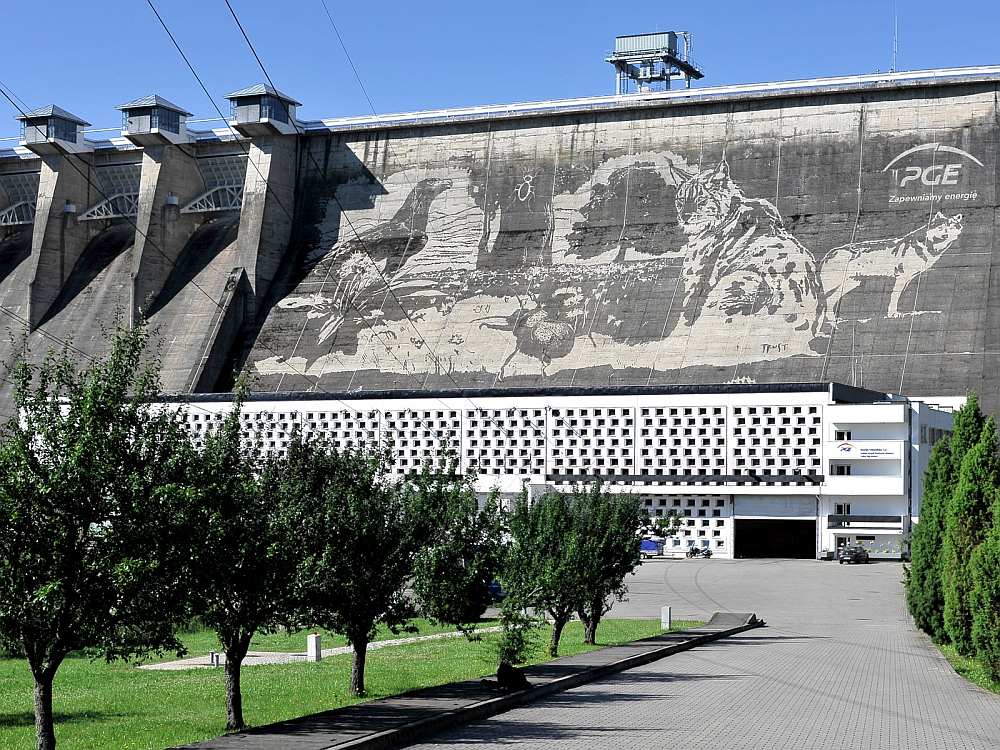
The improvement of Cluna, led by Pope Gregory VII, dealt with symony and clergy and investment. It was during this period that pseudo-papers frequently appeared as opposition to the reform.
XII century
Paschalis II (1099-1118) – For his pontificate in 1110 the pseudo-Pope Clement III died. His corpse was raised by Paschalis from the grave and thrown into the Tiber. Emperor Henry V ordered the capture of Paschalis II and his cardinals and took them to a well guarded place on the outskirts of Rome. From 1100 to 1102, pseudo-Pope was besides Teodoric, in 1102 Albertand between 1105 and 1111 Sylvester IV.
video: ]]>https://vkpatriarhat.org/en/?p=21416]]>]]>https://aidera.wistia.com/medias/k1ijlom6ry]]>
]]>https://bcp-video.org/en/double-paper-2/]]>]]>https://youtu.be/SWoeRrMOmR0]]>
]]>https://rumble.com/v4de5fk-double-Pope.html]]>]]>https://cos.tv/videos/play/50698872956949504]]>
Gelazius II (1118-1119) – Shortly after his election Henry V arrived and was elected as the pseudoPope of Archbishop Braga, who accepted the name Gregory VIII. After the Emperor left Gelazius returned to Rome, but was shortly forced to flee again to France, where he died in Cluny in 1119.
Kalyxt II (1119-1124) – In Cluna Abbey, Archbishop Quido of Vienna was elected pope. The remaining cardinals, clergy and people in Rome agreed with this extraordinary choice. In June 1120 he went to the eternal city. Lateran Ecumenical Council in 1123 ordination given by pseudo-Pope Gregory VIII He found it invalid. Also, all ordination received by bishops ordained by Gregory VIII was invalidated. Grzegorz found shelter in Sutri, but Kalikst in April 1121 with the army conquered the place and ordered the anti-Pope to mock the streets of Rome. Gregory VIII shortly died.
Honorius II (1124-1130) "After the death of Kalikst there was a dispute between the powerful Roman families of Frangipani and Pierleoni about who would become the fresh pope. The Pierleonich organization managed to advance candidate Theobald, who took the name Celestin II. However, after the election, the Frangipani organization disrupted the celebrations and the fresh Pope Celestine He was even abused. The people then elevated the papal candidate Frangipan Honorius II to dignity. Then, although both Celestin and Honorius abdicated, a week later Honorius became Pope.
Innocent II (1130-1143) – After the death of Honorius II, Cardinal Papareschi was elected by Frangipani supporters, who accepted the name Innocent II. On the same night, however, the Cardinals, who faced the facts, refused his approval and elected Cardinal Pietro Pierleoni, who accepted the name Anaclet II. During this double election, deficiencies in the Pope's election of 1059 emerged. akin cases were not expected at all. At the Synod in Etampes in 1130 Bernard of Clairvaux powerfully advocated Innocent. The double papacy did not end until Anaclet II died in 1138. His successor was Victor IV. In June 1139 Innocent personally headed the army against Roger II of Sicily, who supported Anaclet and his successor Victor. The papal army suffered a devastating defeat, and the pope himself was taken prisoner.
Alexander III (1159-1181) – Cardinal Bandinelli was elected as Pope, who accepted the name Alexander III. However, the pro-imperial organization chose Cardinal Octavian, who accepted the name Victor VI. Alexander excommunicated his opponent Pope Victor. The Council (1160) was convened in Pavia. The council ruled in Viktor's favour and cursed Alexander. The Citaux and Chartreuse monasteries advocated Alexander, and the monastery in Cluna advocated Victor. But Victor died in 1164. In his place, the pseudo-Pope was chosen Paschalisa III (1164-1168). He was followed by another pseudo-papers: Kalyxt III (1168-1178) and Innocent III (1178-1180).
At the Lateran Council in 1179, it was decided that in the future, only those who received the votes of 2 thirds of cardinals could become Pope. The law of a two-thirds majority entered into force.
XIV century
Clement V (1305-1314) He changed his seat outside Rome. The popes then resided in Avignon, France. On Urban VI's return to Rome, 1 Pope was in Rome and the another in Avignon.
Urban VI (1378-1389) – On September 20, 1378, the Apostolic College of Fonda elected Cardinal Robert of Geneva, who accepted the name Clement VII. It started a large Western schism. Even today, we cannot say who was the legitimate pope. Urban VI excommunicated Clement VII and his followers, and Clement did the same, which actually excommunicated all Christianity. Clement VII chose Avignon as his residence.
Bonifacy IX (1389-1404) “After Urban’s death, the Cardinals in Rome elected Pietro Tomacelli of Naples to win him, who took the name Bonifacy IX. After the death of Clement VII in 1394 in Avignon, the Cardinals elected Spaniard Peter de Luna, who accepted the name Benedict XIII.
15th century
Innocent VII (1404-1406) – After Boniface's death, the 9th Cardinals in Rome elected Cosimo Migliorati to win him, who accepted the name Innocent VII.
Gregory XII (1406-1415) – After the death of Innocent VII Cardinals in Rome elected Angelo Corrario from Venice, who took the name Grzegorz XII. The Roman cardinals then turned distant from Gregory XII and demanded the Universal Council. Even Benedict XIII, who convened the Council in Perignan, was abandoned by his cardinals. Against the will of both popes called the General Council in Pisa. He met in March 1409. The church council was dominated by supporters of the council explanation who claimed that the council was taller than the pope.
On 5 June, the Council deposed both popes as alleged schismatists, heretics, and perjuries. The Synod chose Cardinal Pillargo, who accepted the name Alexander V. From the double papacy we came to a triple due to the fact that neither Benedict XIII nor Gregory XII accepted the Council's decision. all pope had his followers in any Christian territory.
Alexander V died in 1410. The Cardinals chose in his place Baldassar Cossa, who accepted the name John XXIII And by nature, he was more a warrior than a bishop.
The Czech Emperor Sigismund (1410-1437) convened the General Council in Constance in 1414. The council has overthrown all 3 popes. On 6 April, he issued a questionable decree “Haec Sancta Synodus”, which made the Council superior to the Pope. John XXIII was imprisoned and died in prison. Gregory XII was 90 years old and resigned. Benedict XIII moved his residence to a tiny island and could not be forced to abdicate. He died in 1423. The fresh Pope was elected Martin V (1417-1431). The Council of Constance abolished the triple Papacy, but besides abolished the Reformation Movement of the clergy represented by the Czech priests Jan Milič, Konrád Waldhauser and Jan Hus. In Constance, Jan Hus was falsely marked as a heretic and burned. If a place were given for the improvement of the priesthood, the German Reformation would not gotta come and almost half of Christendom would not have fallen from Rome.
Once again, pseudo-Pope came to church power: Clement VIII (1423-1429) and Benedict XIV (1423). The Basel Council in 1439 declared itself superior to the Pope and deposed Pope Eugenius (1431-1447) in June that same year. Eugenius cursed the participants of the Council, but they in Basel (1439) chose a pseudo-Pope Felix V (1439-1449). With him the era of double papacy ended. Historians write: "Eugenius IV, although he saved Papacy from concilism, but he is liable and for doing absolutely nothing for the general repair of the Church from head to toe. Rome prevented the essential spiritual improvement and so had to face the German Reformation under the leadership of Marcin Luther later."
Both the Reformation Movement in Cluna and the Czech Reformation Movement aimed to combat simony and another crimes and to prosecute the spiritual revival of the priesthood.
In the present atmosphere, it is essential to make conditions for spiritual life again. It is besides essential to build a strategy of protection against current dependence. If you don't. baudaily have a priest, they won't have him either. spiritual awakening will not then occur.
What precisely do we do? On Sunday evening, let 4 to 7 priests gather in the rectory and in the brotherhood, give themselves to the prayer and word of God, or apostolic teaching. The gathering will not end until Tuesday at noon. This is simply a proven experience of many priests. The condition is to dedicate on Monday to prayer 4 hours and then besides on Tuesday. On Monday, they dedicate their time to God’s Word, which is to be preached to the faithful on Sunday.
The Holy Liturgy must proceed on Monday. In the brotherhood, it is good to talk openly about your mistakes and besides to be able to accept criticism. All of this is done in the spirit of repentance for spiritual purification and actual imitation of Christ.
Today, however, there is 1 large danger – a spreading homosexual infection. Therefore, caution is needed.
The essence of improvement is repentance and prayer. It is essential that we bishops and priests put these 2 tools first in our lives. If we give our believers a individual experience, not just a theory, they will follow us.
As far as dual papacy is concerned, its origin almost always was a dispute over external authority, that is, external power. This active material benefits and prestige. The Church besides needs an external authority, but it is only actual if it is besides a spiritual authority. His work is to make the conditions essential for spiritual life and to defend religion and morality. During 2 papacy in history, neither 1 nor the another promoted the self-destruction of religion and morality. But present the pseudo-Pope of Bergoglio and his sect liquidate the Church from within. Therefore, there is only 1 way, namely to accept in this extraordinary situation the rightful pope. Otherwise, Bergoglio will comprehensively complete the individual changes and the external structure will no longer be able to transfer to the regulation of the legitimate pope guaranteeing orthodoxy and orthopractice.
The coming of the rightful pope will affect spiritual warfare, due to the fact that the Bergoglio sect will not voluntarily quit power or a liquidation goal. At the same time, a legitimate improvement must besides concern the priesthood, namely the renewal of interior life.
+ Elijah
Patriarch of Byzantine Catholic Patriarchate
+ Methodius OSBMr + Timothy OSBMr
bishops-secretaries
Part 2. Double Papacy in the past of the Church
]]>https://vkpatriarhat.org/en/?p=23487]]>english
]]>https://vkpatriarhat.org/fr/?p=16897]]>français
Subscribe to our newsletter]]>https://lb.benzmarkemail.com//listbuilder/signupnew?5hjt8JVutE5bZ8guod7%252Fpf5pwVnAjsSii5iGuoPZdjDtO5iNRn8gS049TyW7spdJ]]>


![Macierewicz przyzwyczaja się do roli pieszego. Nie wygląda na szczęśliwego [ZDJĘCIA]](https://cdn.galleries.smcloud.net/t/galleries/gf-exQC-pTdz-VbQB_chodzi-bo-nie-moze-jezdzic-1920x1080-nocrop.jpg)










